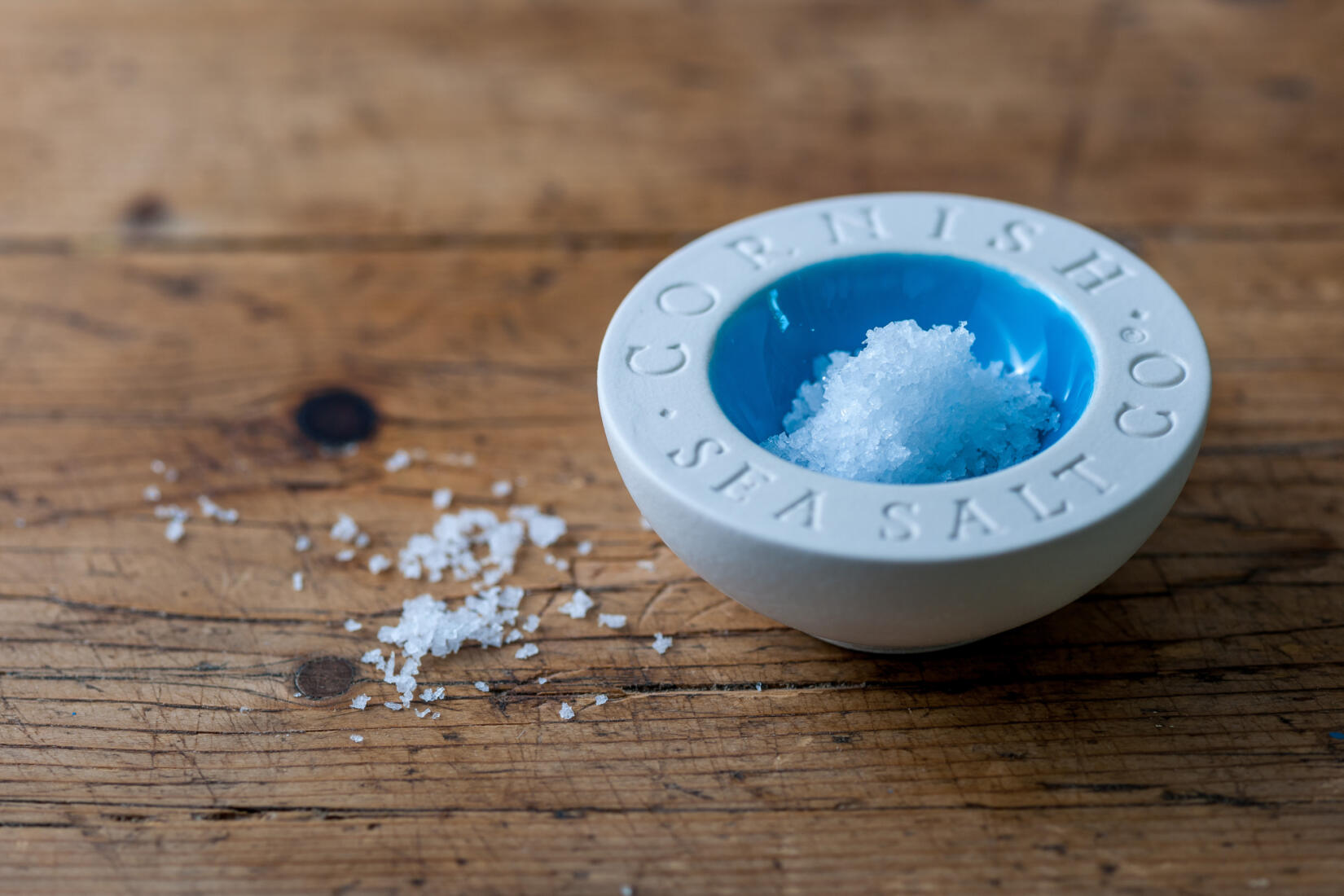Producing Cornish Sea Salt
Cornish Sea Salt Co.
Most people conjure up images of enormous salt flats in baking sunshine when they think about sea salt production. Unfortunately, we don’t exactly have the most reliable weather here in Cornwall (although when the sun is shining, there’s nowhere we’d rather be), so the crew at Cornish Sea Salt have had to think outside the box somewhat and recreate nature without having to rely on the climate.
Watch the film
Natural and age-old traditions
They have developed a very natural process that blends age-old traditions with some innovative and energy-efficient technology which has no effect on the marine ecology or environment. It all happens down at their eco-friendly harvesting plant just a stone’s throw from the clearest, bluest ocean waters off the Lizard peninsula. It’s a stunning location, but more importantly, it’s a protected zone and the sea waters are as pure as they can be, classified Grade ‘A’ by the British Fisheries which basically means that it’s clean enough that you could eat the shellfish straight from the sea, raw and unwashed!
They pump this grade ‘A’ sea water up into enormous tanks and then take the water through a very clever 3 stage filtration process to get rid of silt, sand and micro-organisms. Following this, using innovative technology to offer a low energy output the sea water is concentrated into a super-saturated brine. The brine is poured into vats, and gently heated. Over 2 days, salt crystals start forming on the surface, floating around in a mesmerising way. It’s at this point that other elements that occur naturally in the sea water like magnesium, potassium and calcium (there are over 60 in total, we won’t name them all!) come together and attach to the sodium chloride crystals giving the sea salt its intense flavour. The Cornish Sea Salt crew know exactly the right moment that the delicate crystals are ready to be hand-harvested and carefully scoop them out from the brine with a device that looks like an oversized spatula.
The salt is then left to dry before being packed into the little tubs that we’re so familiar with. Interestingly, sea water is naturally at around 3.5% salinity, and Cornish Sea Salt only take a very small portion of this, which means that the remaining water that is returned to the ocean (it trickles down a natural fault in the rock face) is technically sea water, not distilled water. Cornish Sea Salt is the only British sea salt company that takes sea water in and returns sea water back to the ocean as opposed to distilled water – which, over time, can have an effect on local salinity levels.
Be the first to know
We'd love to keep in touch and send you the latest news, events, competitions and offers from the Bay. Sign up to receive our e-newsletter.

